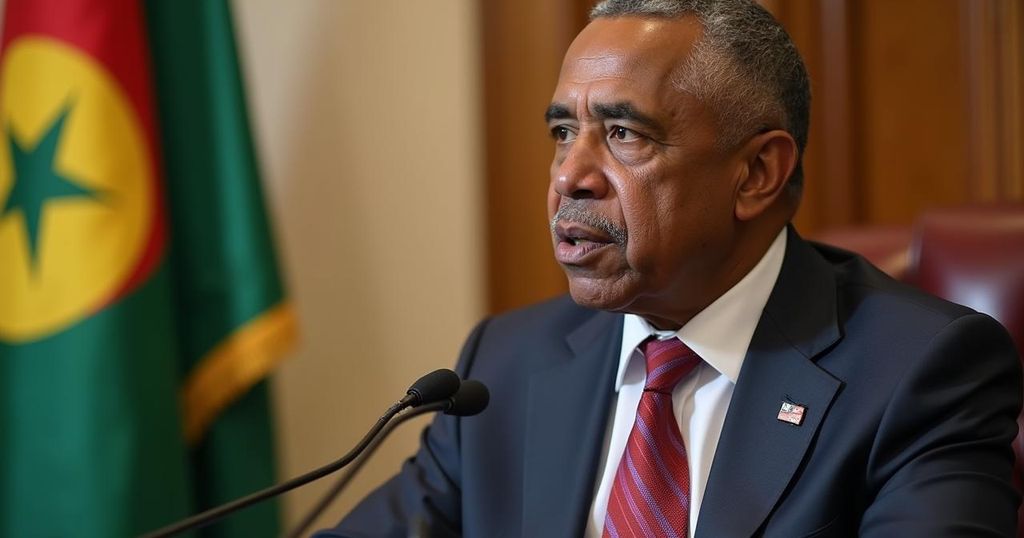Cameroon Enforces Ban on Media Discussion about President Biya’s Health
The Cameroonian government has imposed a ban on media discussions regarding the health of President Paul Biya, aged 91, asserting that such dialogue is a matter of national security. Government officials have dismissed health-related rumors as unfounded, attempting to quell public concern amid Biya’s significant absence in public forums since early September. Criticism over the ban has emerged, viewing it as censorship and an infringement upon the public’s right to information regarding their elected leader.
The Cameroonian government has instituted a ban on media discussions concerning the health of President Paul Biya, who is 91 years old and has not publicly appeared since early September. The Interior Minister, Paul Atanga Nji, issued the ban via a letter dated October 9, which mandated that any debate regarding the president’s health be deemed ‘strictly prohibited’. Furthermore, the letter suggested the establishment of ‘monitoring cells’ tasked with surveilling online discourse, labeling the matter a ‘national security’ issue. Violators of this ordinance are warned they will face severe legal repercussions. Authorities have dismissed speculation surrounding President Biya’s well-being as fanciful, with Government spokesperson Rene Sadi asserting that the president is in good health, while claiming that he had recently traveled to Europe after attending the China-Africa summit in Beijing. Sadi vehemently denied the swirling rumors regarding Biya’s health, emphasizing the government’s stance that such narratives are unwarranted fabrications. Critics of the ban, including journalists and media rights organizations, have condemned it as a manifestation of governmental censorship. Hycenth Chia, a journalist based in Yaoundé, articulated that citizens have a right to inquire about the health of their elected leader, stating, “The president is elected by Cameroonians and it’s just normal that they worry about his whereabouts”. The Committee to Protect Journalists (CPJ) expressed its grave concerns regarding the imposition of this ban, criticizing the government for cloaking such a significant issue under the guise of national security. With President Biya having ruled for over 41 years, observers speculate that his potential health decline could lead to considerable political unrest in both West and Central Africa, a region already fraught with instability following numerous coups since 2020.
The situation surrounding President Paul Biya of Cameroon, who has been in power since 1982, raises significant concerns about the transparency of governmental communication regarding the health of national leaders. Following his last public appearance in early September at the China-Africa summit, President Biya’s absence from various engagements, including the United Nations General Assembly and a French-speaking nations summit, has fueled speculation and concerns regarding his health. The government’s response, instituting a ban on media discussions about his health and establishing monitoring cells, reflects a broader trend of controlling information and limiting press freedom in the country. The implications of such governance are profound, particularly considering the lack of a clear succession plan, which could further exacerbate political instability in an already tumultuous region. The reactions from both journalists and international bodies such as the CPJ highlight the tension between governmental authority and freedom of expression in matters of public interest.
In summary, the Cameroonian government’s decision to ban media discussions surrounding President Biya’s health underscores significant issues regarding censorship and the suppression of freedom of expression. This action has drawn criticism both locally and internationally, with concerns that the leadership’s opacity regarding the president’s well-being could exacerbate political instability in a region already experiencing unrest. Ultimately, the fate of Cameroon under Biya’s prolonged rule raises essential questions about the future stability of the nation’s governance.
Original Source: www.aljazeera.com




Post Comment